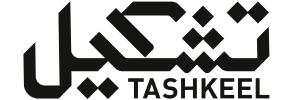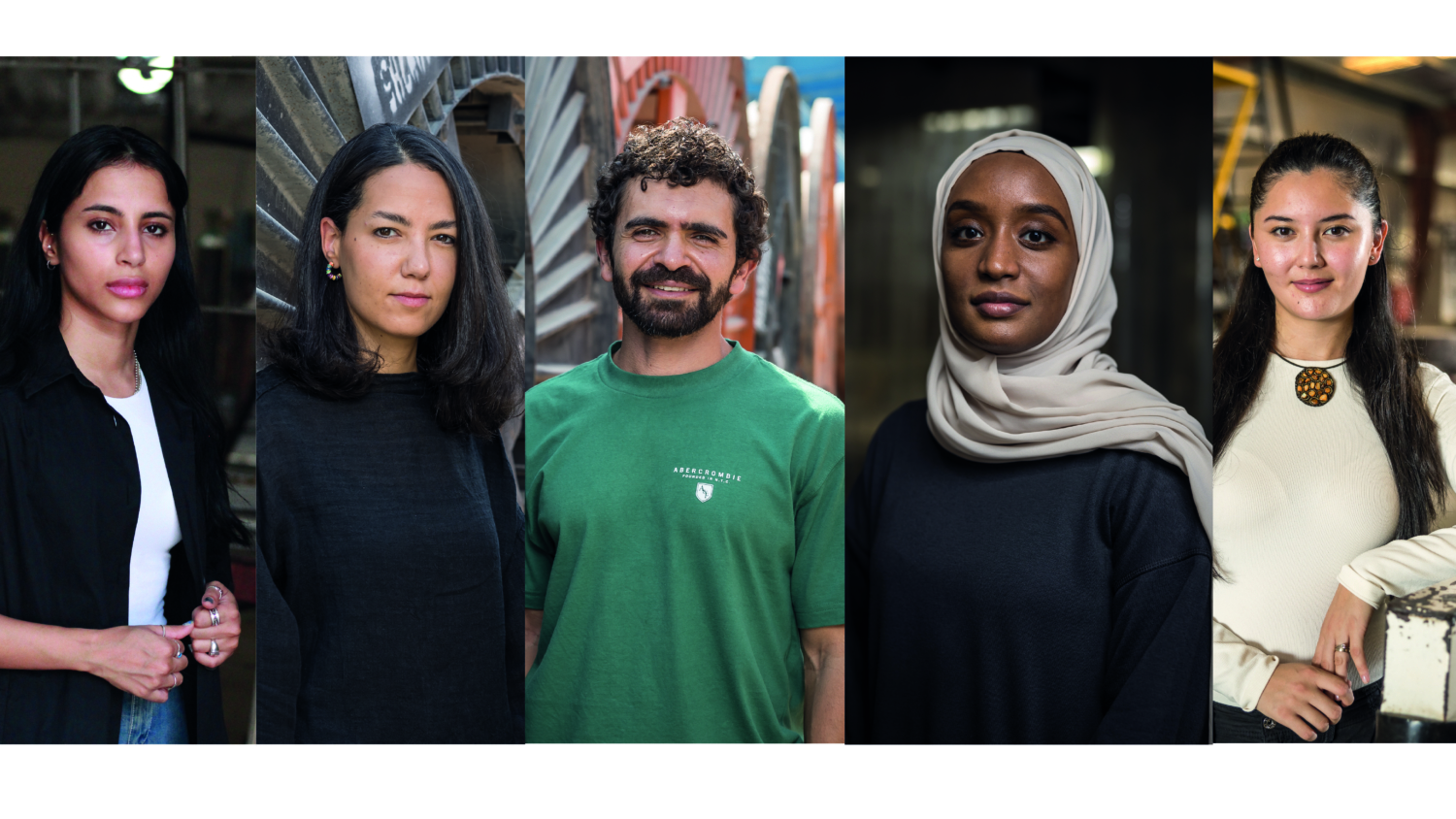Tashkeel is pleased to announce the latest cohort of designers selected for its Tanween design programme 2023: Wafa Al Falahi, Marwa Abdelrahim, Maryam Elattar & Mohamed Elnaggar and Chinara Darwish.
The tenth edition of the Tanween Design Programme continues the focus on sustainability, addressing one of the fundamental challenges facing the world today. The selected five UAE-based designers will collaborate with engineers and scientists over eleven months and ultimately deliver an innovative, functional design outcome with sustainability as a defining element.
____
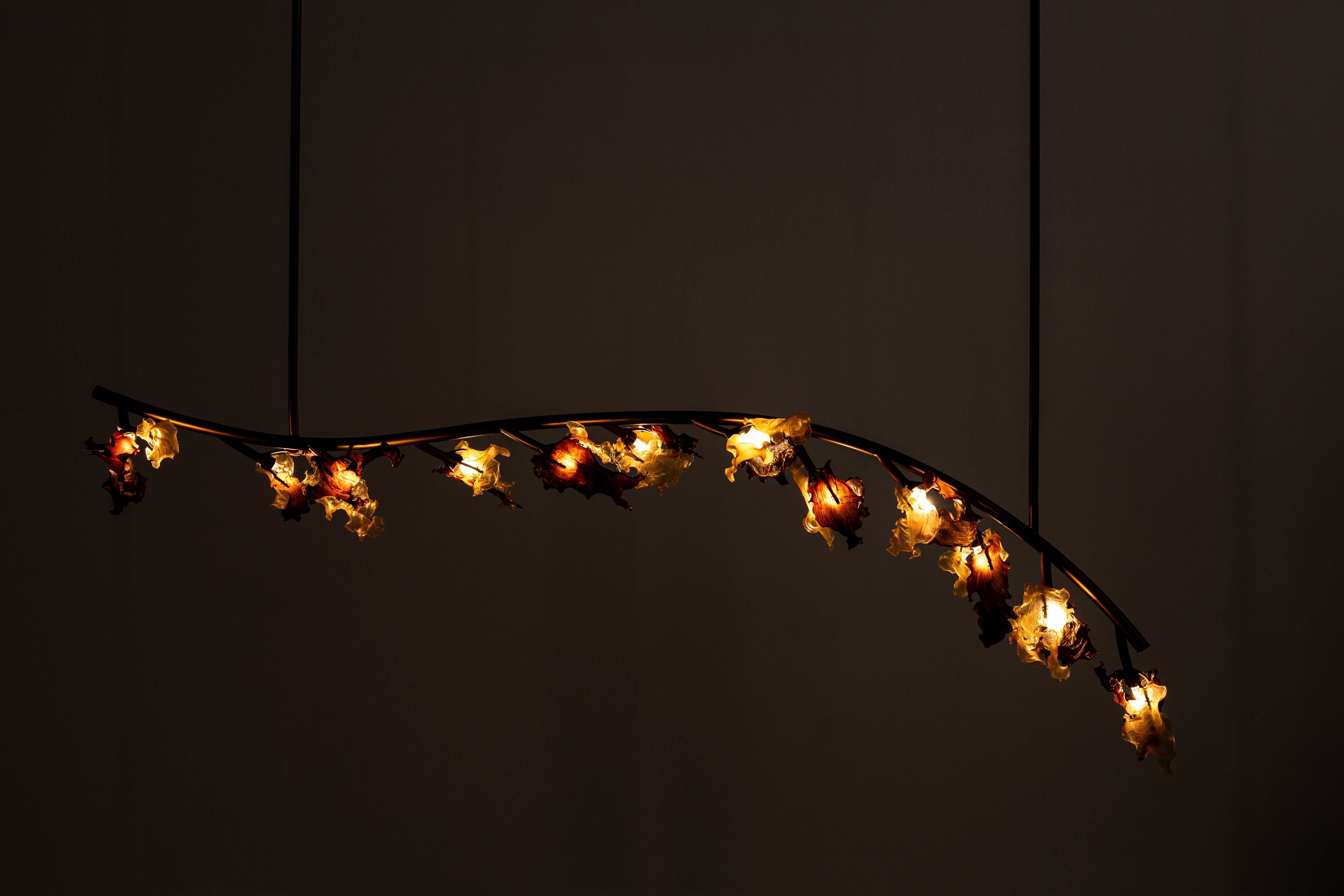
Wafa Al Falahi
Roots by Wafa Al Falahi is a lighting piece that explores sustainable materials from the Middle East, like biodegradable henna components, aligning with local resources. The steel structure's versatility promotes resource efficiency, showcasing the region's potential for sustainable practices. The lighting fixture functions as a communal centrepiece, fostering a sense of togetherness reminiscent of family homes. Crafted from a combination of steel and biodegradable plastic infused with henna, this piece exudes a harmonious blend of colours, radiating a welcoming warmth. Additionally, its dimmable lighting feature enhances the overall comfort and ambiance.
____
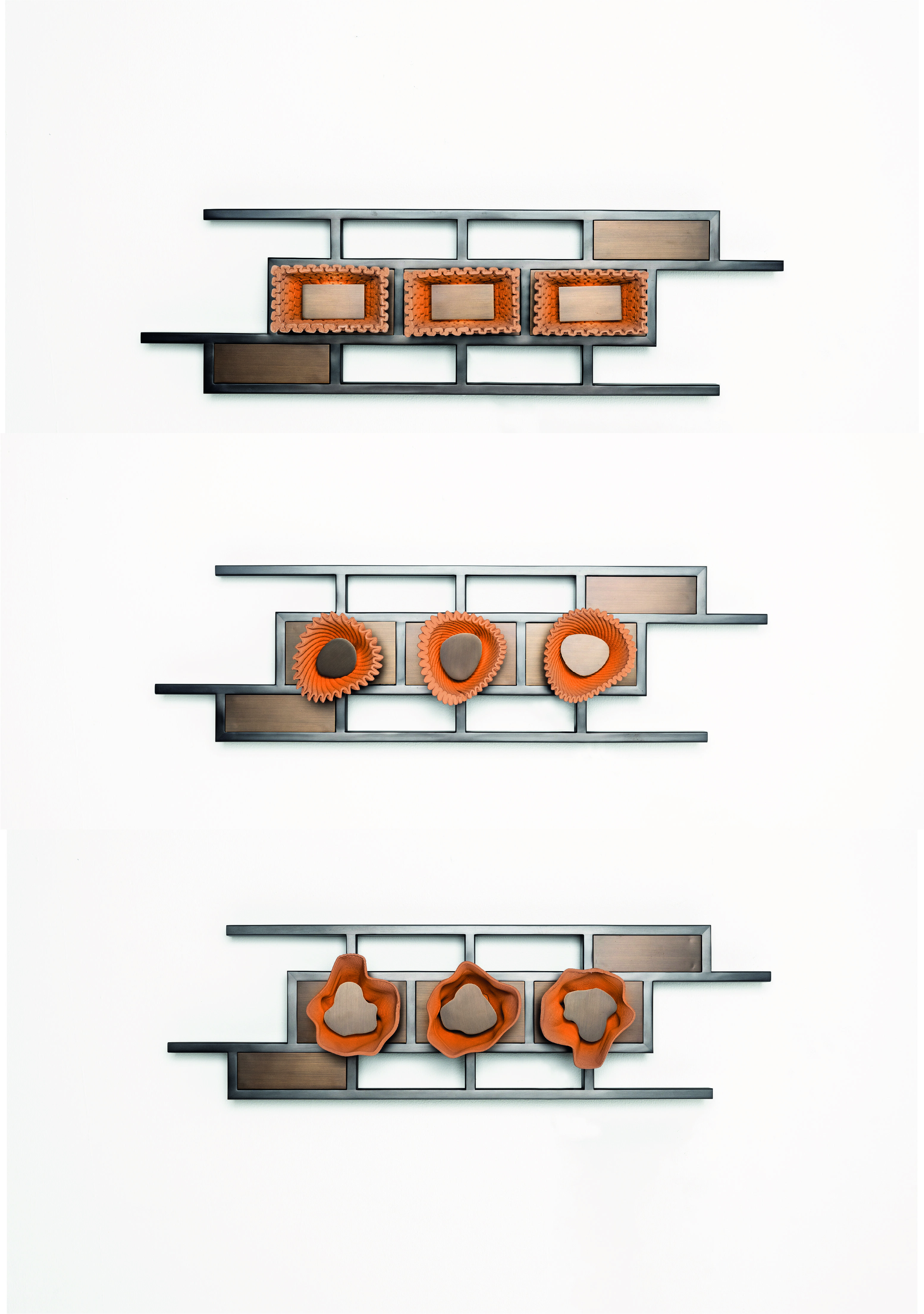
Marwa Abdelrahim
The Mishkah Collection by Marwa Abdelrahim is a set of three 3D-printed lighting fixtures using a mix of locally sourced and imported clay. The product is inspired by traditional mud-brick building techniques, where the clay is mixed with water until it reaches a malleable plastic consistency, the clay is then crafted into moulds and left to sun dry and eventually solidify forming stackable building blocks. The Mishkah Collection comprises three unique lighting units, with each unit designed to capture a specific stage in the clay’s transformation process.
The design draws inspiration from the architectural elements of wall niches, traditionally used in buildings as shelves and commonly used to house lanterns, these areas are referred to in Arabic as ‘mishkah’. The back frame is made of a brushed brass finish resembling part of a stacked brick wall and referencing the rectangular-shaped moulds generally used to form clay into bricks. The choice of brass finish in combination with 3D-printed clay colour and texture along with the soft warm light effect aims to reflect the warm and rich ambiance of traditional earthen buildings, emulating their deep connection to place and history.
____
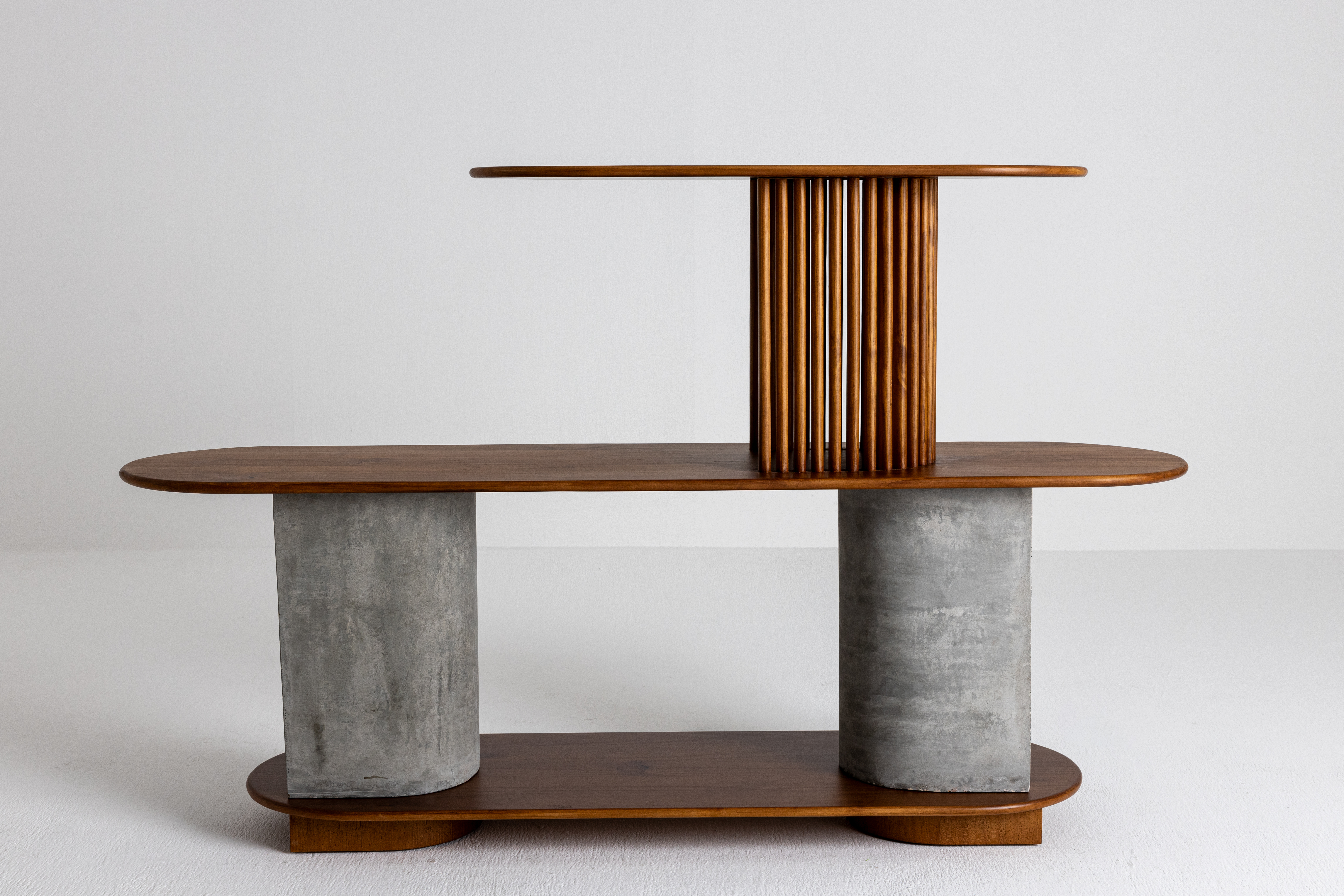
Maryam Elattar & Mohamed Elnaggar
Doroob دُرُوب by Maryam Elattar and Mohamed Elnaggar is a shelving unit / standing desk that reflects the potential of the circular economy in each and every detail. The multifunctional design is inspired by the meaning of ‘Doroob’ an Arabic term describing the various ways to reach a destination. The materials used are reclaimed from construction and infrastructure projects in addition to fired clay reclaimed from pottery studios across the UAE. Treated wood from redundant industrial cable spools is given a second life as elegantly curved, tiered surfaces that can be used for decorative display or functional use. Similarly, concrete is removed from its usual industrial context and presented as a viable material for contemporary interior design. Softened by the smooth rounded form, it gives the slightest nod to the brutalist facades so prevalent in the architecture of the UAE of the 1970s and 1980s that endures to this day across the country’s urban landscapes.
The design aims to contribute to the sustainability movement, nudge our consciousness of the journey of materials and trigger conversation around the production process.
____
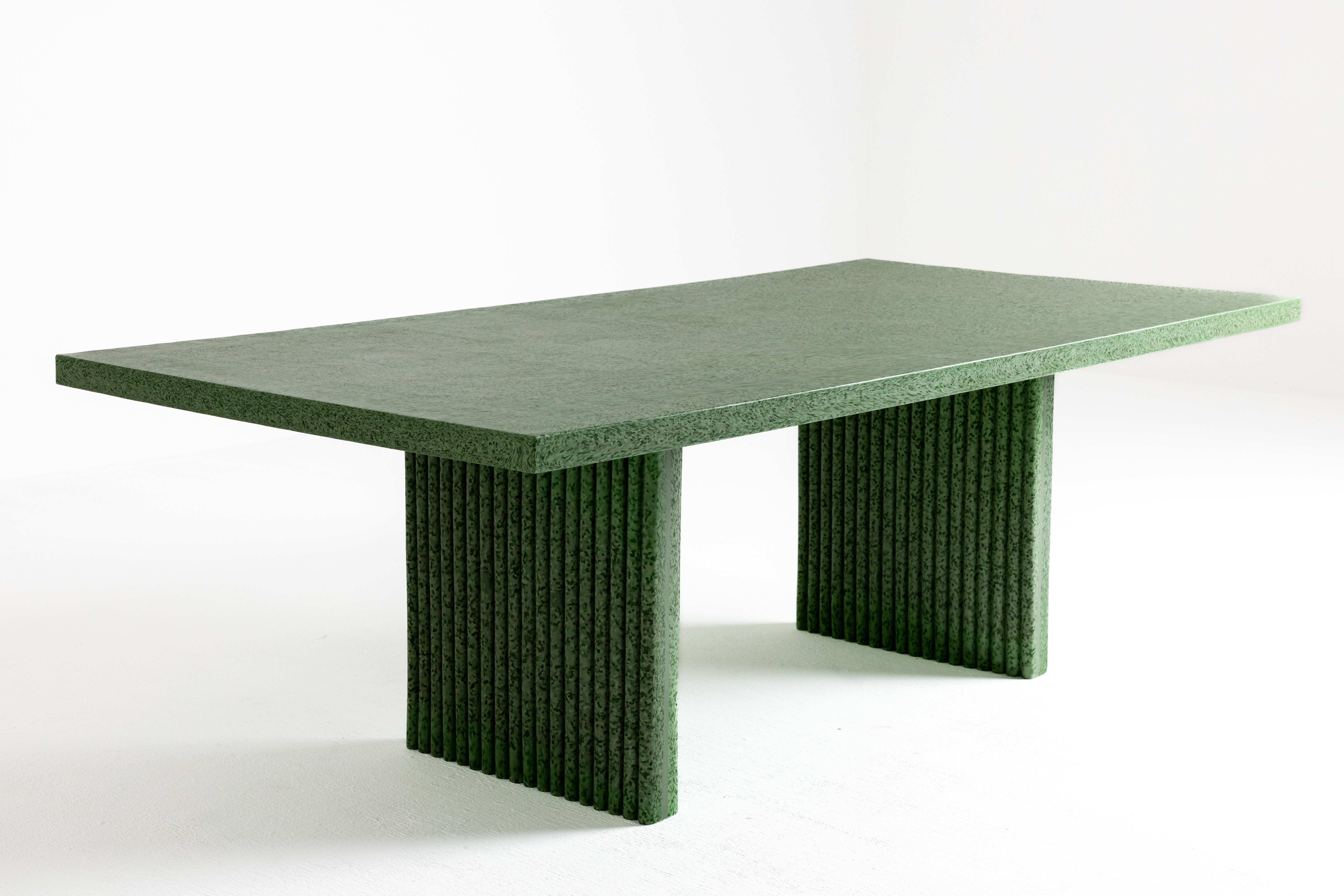
Chinara Darwish
“The Alchemy Series: Dining Table” by Chinara Darwish is made from 100% locally sourced, marine industry and construction LDPE (low density polyethylene) waste sourced from redundant marine marker buoys, dredging floats, road barriers and water tanks. Designed with sustainability as a core driving force, the eight-seater dining table tis a bespoke design piece consisting of 193 kg LDPE plastic waste. Working with a circular design process, The Alchemy Series aims to be a zero-waste collection, cultivating integrity in providing realistic and practical solutions to the sustainability challenges around the consumption and plastic waste. The captivating surface pattern is achieved through the material’s variation and experimentation during production; each table is therefore unique and impossible to replicate. The dining table is designed to be functional, durable, practical and vibrant.
The Tanween design programme was initiated in 2013 by Tashkeel and the late Roanne Dods, co-producer of Small is Beautiful. Alumni include Alya Al Eghfeli (UAE), Amer Aldour (UAE), Abdalla AlMulla (UAE), Ebrahim Assur (Cape Town), Eman Shafiq (Pakistan), Hala Al Ani (Iraq), Hamza Omari (Jordan), Huda Al Aithan (KSA), Ibbini Studio (UK/Jordan), Khaled Shalkha (Russia), Khawla Mohammed Al Balooshi (UAE), Lana El Samman (Lebanon/Canada), Latifa Saeed (UAE), Lina Ghalib (Egypt), Lujain Abulfaraj (KSA), Lujaine Rezk (Egypt), Myrtille Ronteix (France), Nada Abu Shaqra (Palestine), Neda Salmanpour (Iran), Nuhayr Zein (Egypt), Rand Abdul Jabbar (Iraq), Reema Al Mheiri (UAE), Renad Hussein (Jordan), Saher Oliver Samman (UK), Salem Al Mansoori (UAE), Sara Abu Farha (Palestine), Shaza Khalil (Egypt), Studio MUJU (UK/Egypt), Talin Hazbar (Syria), Tasneem Tinawi (Syria), Yara Habib (Lebanon/Canada), Zeinab Al Hashemi (UAE), Zuleika Penniman (USA/Lebanon).
Share this page:
Mentors
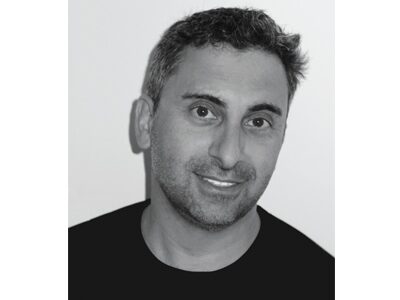
Kevin S. Badni is the Head of the College of Arts and Creative Enterprises, Zayed University. Previously, he was the Head of Art and Design at the American University of Sharjah. He received his Bachelor’s degree in Product Design from Loughborough University and his Master’s in Multimedia Design from De Montfort University in the UK. Before becoming an academic, Badni spent ten years as a professional designer working in the design industry, including managing the UK’s first commercial Virtual Reality centre. His main research area of interest is the personal perceptions of vision; he has had his art exhibited in galleries in the UK, Australia, America, Colombia, Italy and the UAE.
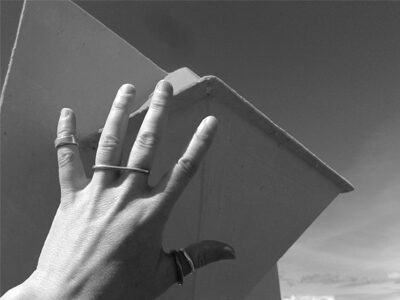
Helen Voce is a supporter of creative people and creative industries. As an independent project manager, event and programme producer in the creative industries she works locally, nationally, internationally and voluntarily from her base in Scotland. She designs, facilitates and produces opportunities, initiatives and spaces in which creative practitioners, microbusinesses and projects can realise their full artistic and business potential. Her professional specialism and personal interest is contemporary craft and design. Amongst other things, Voce is Regions Coordinator at Make Works, Co-Producer of Applied Arts Scotland’s Digital Craft Toolkit for the British Council {Thailand} and a Board Member of Fife Contemporary. Previous roles include business development programme / workshop facilitator and mentor at Emergents, Open Project Fund Assessor at Creative Scotland, Mentor on the British Crafts Council’s Hothouse development programme for emerging makers and Crafts Programme Producer at Cove Park, Scotland’s international artists’ residency centre. A postgraduate of the Royal College of Art / Victoria & Albert Museum’s MA in the History of Design and Material Cultural, 1650 to the present, Voce has previously worked for Cultural Enterprise Office, the British Crafts Council and the Victoria & Albert Museum.
Current Participants
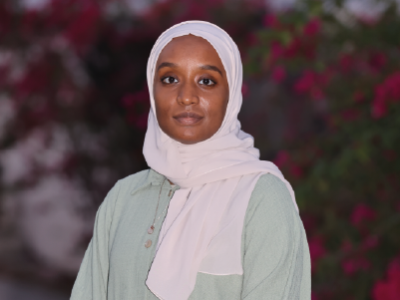
Marwa Abdelrahim
Marwa Abdelrahim is an architect and researcher based in Abu Dhabi. She holds a BSc in Architectural Engineering from the University of Sharjah and a postgraduate degree in 3D printing Architecture fr...
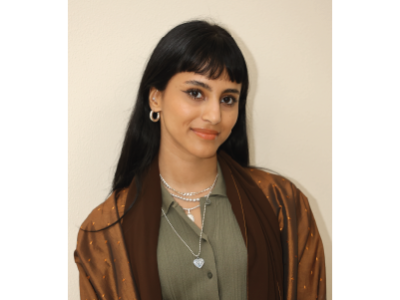
Wafa Al Falahi
Wafa Al Falahi is an Emirati multidisciplinary designer who graduated from the American University of Sharjah with a Bachelor's degree in Interior Design. As an interior designer, her work integrates ...
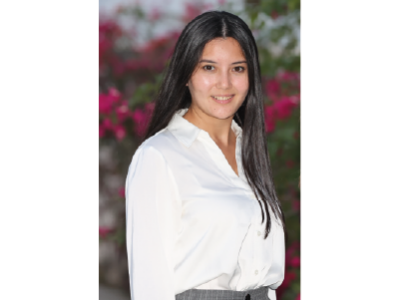
Chinara Darwish
Chinara Darwish is a mechanical engineer and has worked in the oil and gas industry. The combination of her motherhood journey and technical background sparked an interest in materials that can be use...
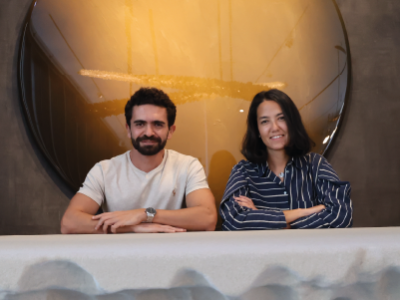
Maryam Elattar & Mohamed Elnaggar
Maryam Elattar (ceramic artist) and Mohamed Elnaggar (electrical engineer) share a passion for clay design. Maryam Elattar is an Egyptian ceramic artist and illustrator. She holds a degree in Economic...
Opening Hours
Tashkeel Alserkal
Makerspace, Unit 89, Alserkal Avenue
Sat-Thu 10am – 7pm
(closed Fridays & public holidays).
Tashkeel Nad Al Sheba
Nad Al Sheba 1
Daily 8am - 10pm
How to find us
